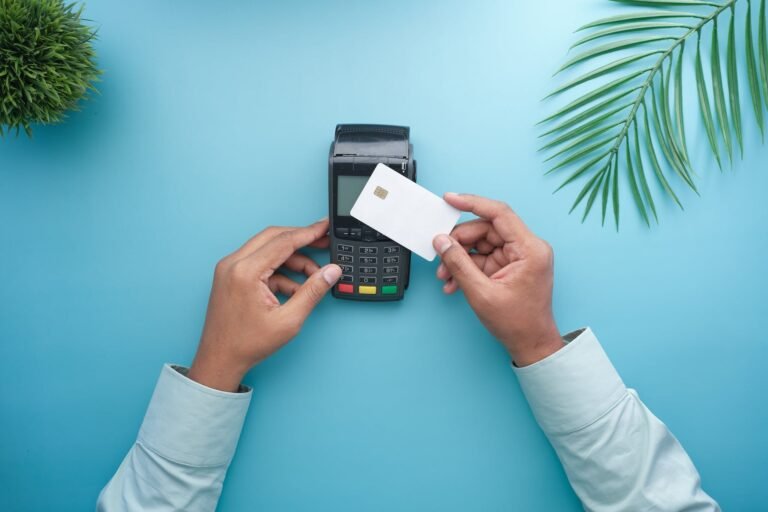NFC technology has made it easy for businesses to store data and share information quickly and easily.
However, one question that still remains is: do NFC tags and business cards get affected by magnets?
In this article, we will explore the science behind NFC and magnets and discuss the impact of appeals on NFC tags and business cards, as well as provide best practices for ensuring they work correctly.
We will also discuss the company Tap Tag and their offerings to help businesses utilize NFC technology.
Key Takeaways
- NFC tags use radio frequency technology and strong magnets can potentially distort the copper antenna and interfere with communication.
- The data on an NFC tag is not directly affected by magnets, but strong magnets can potentially erase or overwrite the data and interfere with the NFC reader’s ability to read and write to the tag’s memory.
- Precautions should be taken to keep NFC tags at least a few inches away from strong magnets, test them in magnet-exposed environments, and reprogram them if any issues occur.
- NFC tags can be password-protected to enhance security, and smartphone apps can be used to program or reprogram them.
Introduction to NFC Technology
What is NFC technology, and how does it work?
NFC, or Near Field Communication, is a wireless technology that enables two-way communication between two devices.
NFC technology works by creating a secure connection between two devices, allowing them to exchange data such as images, text, or audio files.
NFC tags and magnets use radio frequency to communicate, and the tag’s antenna is usually made of copper.
However, strong magnets can potentially distort the copper and interfere with communication.
What are NFC Business Cards and NFC Tags
NFC technology has made it possible to integrate data into cards and tags.
NFC business cards and NFC tags are two of the most popular applications of this technology and are used extensively in many businesses.
Both products are distinctive in their features and offer various advantages to businesses.
Key Features and Uses
NFC business cards and NFC tags are contactless cards and tags that make use of radio frequency technology to transfer data. They use a copper antenna to detect and exchange information with compatible devices.
NFC tags are commonly used for storing information like links, contact information, and loyalty program data.
NFC business cards can be used to store digital business cards, allowing for quick and easy sharing of contact information. They can also be used to store links to websites, social media profiles, and other digital content.
NFC tags and business cards provide a secure and convenient way to transfer data.
The Science Behind NFC and Magnets
NFC technology relies on radio frequency communication between an NFC tag and an NFC reader.
The strength of the magnetic field from a magnet can potentially interfere with this communication.
Therefore, it is important to understand how NFC works and how magnetic fields can interact with it.
How NFC Works
The science behind NFC and magnets lies in communicating between an NFC tag’s copper antenna and the reader. It uses radio frequency technology, and strong magnets can potentially distort the copper antenna and interfere with communication.
NFC tags are not directly affected by magnets, but strong magnets can potentially erase or overwrite the data on an NFC tag. It’s important to take precautions, such as keeping NFC tags away from strong magnets, testing tags in environments where they may be exposed to strong magnets, and reprogramming the tag if needed.
Magnetic Fields and NFC Interactions
Understanding the science behind how NFC tags interact with magnetic fields is key to determining if NFC business cards and tags are affected by magnets. NFC tags use radio frequency technology to communicate with antennas made of copper, which can distort when exposed to strong magnets. However, everyday magnets are not strong enough to affect NFC tags.
Magnets do not affect the data stored on an NFC tag, but the magnetic field can interfere with the reader’s ability to read and write to the tag’s memory. Taking precautions such as keeping NFC tags away from strong magnets can help prevent any issues.
Are NFC Business Cards Affected by Magnets
When using NFC business cards, it is important to understand the potential risks and interferences that strong magnets could cause.
To reduce these risks, it is necessary to conduct real-world scenarios and tests to determine the impact of magnets on NFC business cards.
Potential Risks and Interferences
Strong magnets can potentially distort the copper antenna in NFC tags and interfere with communication, making it important to understand the risks and potential interferences that come with using NFC business cards. These include:
- Data erasure or jumbling
- Interference with reader’s ability
- X-ray machine exposure
To prevent these issues, it is recommended to:
- Keep NFC tags away from magnets
- Test NFC tags in potential magnetic environments
- Reprogram NFC tags if necessary
- Put wallets with NFC tags in the TSA bin during airport security checks
Additional security measures can also be taken, such as password-protecting NFC tags, to enhance security. By taking these precautions, users can ensure the proper functioning of their NFC tags.
Real-world Scenarios and Tests
Testing for the effects of magnets on NFC tags is a key step to ensuring their proper functioning. To ascertain the effects of magnets on NFC tags, real-world scenarios should be tested.
For instance, placing a wallet containing NFC tags in the TSA bin at an airport. This can potentially erase the tag’s contents due to the X-ray machine.
Additionally, holding strong magnets near NFC tags should be tested to see if there are any detrimental effects. This can help to identify any interference to communication or data stored on the tag.
With the right precautions, NFC tags can be used safely in any environment.
Are NFC Tags Affected by Magnets
NFC tags and magnets may interact in various ways. It is important to understand the implications of their interaction and how to protect best data stored on NFC tags.
Magnets can potentially distort the copper antenna of an NFC tag and interfere with communication. Strong magnets, in particular, can potentially erase or overwrite data.
Knowing the recommended precautions and understanding how to password protect NFC tags is key to ensuring the safety of data stored on NFC tags.
Differences and Similarities to NFC Business Cards
Although both NFC tags and NFC business cards use radio frequency technology to communicate, there are some subtle differences and similarities between these two types of NFC technology when it comes to how they respond to magnets.
NFC tags:
- Strong magnets can potentially distort the copper antenna and interfere with communication.
- Data not directly affected, but strong magnets can potentially erase/overwrite.
- Keep tags away from strong magnets & test in environments.
NFC business cards:
- X-rays at airports/hospitals can potentially erase contents.
- Password protect to enhance security.
- Reprogramming/reformatting can fix any issues caused by magnets.
Protection and Safe Practices
Taking appropriate precautions and following safe practices can help to ensure that NFC tags are not affected by magnets. Strong magnets can potentially erase or overwrite data stored on an NFC tag, while the magnetic field can interfere with the NFC reader’s ability to read and write to the tag’s memory.
It is recommended to keep NFC tags away from strong magnets, test them in environments where they may be exposed to them, and reprogram the tag if any issues occur. Additionally, password protection can be used to enhance security, and apps can be used to reprogram the tags.
With these precautions, NFC tags can remain safe from magnetic interference.
Best Practices for Storing NFC Devices Near Magnets
How should NFC tags and business cards be stored in the presence of magnets to ensure they remain in working condition?
It is best to keep NFC tags at least a few inches away from strong magnets, test them in environments where they may be exposed to magnets, and reprogram them if any potential issues arise.
To ensure data security, password protection and X-ray shielding are also recommended.
Taking these precautions will ensure proper functioning of NFC tags and business cards.
Conclusion: NFC and Magnet Coexistence
By following recommended precautions and taking into account the potential effects of magnets, NFC tags and business cards can coexist with magnets without any significant issues.
Keeping tags a few inches from strong magnets, testing in environments where magnets may be present, and reprogramming can help protect data stored on NFC tags.
X-ray machines, however, can potentially erase the contents of an NFC chip, so it is important to follow guidelines and take the necessary precautions to ensure proper functioning.
With the right steps, NFC tags and business cards can provide the necessary security and convenience.
Frequently Asked Questions
What Is the Range of an NFC Tag?
NFC tags typically have a range of up to 4 inches, depending on the type and environment. Factors such as signal strength, antenna size, and interference from external sources can affect the range. Additionally, the NFC reader’s capabilities may also be a factor.
How Can I Secure My NFC Tag’s Data?
NFC tags can be secured by password protecting them. Reprogramming the tag with new information is a key feature. Smartphone apps and a few steps can program or reprogram NFC tags for enhanced security.
Are There Any Other Environmental Factors That Can Affect an NFC Tag?
Yes, other environmental factors can affect an NFC tag, such as extreme temperatures, water exposure, and high-powered X-ray machines. These can cause data to be erased or jumbled, so it is important to take precautions when using NFC tags in these environments.
How Fast Is the Communication Between an NFC Tag and an NFC Reader?
The communication speed between an NFC tag and an NFC reader is typically very fast, with data transfer rates up to 424 Kbit/s. NFC tags can be read in less than a second, depending on the tag type and the data size. Data transmission speed is affected by several factors, including the type of tag, the size of the data, and the amount of interference in the environment.
How Durable Are NFC Tags?
NFC tags are generally very durable and resistant to interference from external sources. They are usually made from robust materials and designed to withstand impacts, water, dust and other environmental factors. However, extreme temperatures, pressure, and strong magnets can potentially damage the NFC tag.
Conclusion
NFC technology offers businesses a convenient and secure way to store data and share information. However, caution must be taken when storing NFC devices near magnets, as magnetic fields can potentially interfere with the copper antenna.
It is important to understand the science behind NFC technology and magnets to understand the potential impact of magnets on NFC tags and business cards. Businesses should take the necessary steps to reduce the risk of interference when using NFC technology.
By following best practices and understanding the potential impact of magnets, businesses can safely and securely use NFC technology.






